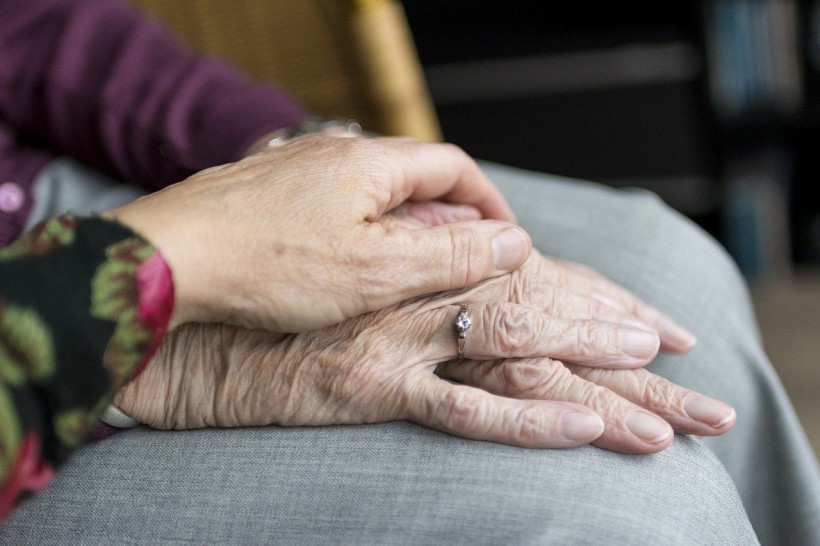It's not always easy to see the first signs of a developing mental health problem in the elderly. Here are some warning signals to keep an eye on.
Almost a quarter of all individuals aged 55 and over have a mental health problem, with one in every three of these at-risk adults remaining misdiagnosed and untreated. With these dismal numbers impacting one of the fastest-growing groups in the United States, we owe it to ourselves and our aging loved ones to be aware of the warning signs and how to deal with them.
Unfortunately, one-third of those seniors do not seek therapy due to embarrassment or the fear of being disregarded as a normal part of aging. It is necessary to examine your senior loved one's safety and well-being with information and vigilance, and keep an eye on their emotional and mental health to ensure they receive adequate care.
About 58 percent of those over 65 years of age believe depression is a natural part of growing old. Myths like these frequently hinder elders from being diagnosed with and receive treatment for mental disorders. (Mental Health America Survey)
Do mental health problems become worse as you get older?
Mental illness is not a normal process of growing older. These health issues afflict younger individuals more frequently than they do the older generation. Elderlies, on the other hand, are less inclined to seek assistance.
Severe cognitive impairment, sometimes known as dementia, is the most prevalent mental illness among the aged.
Besides treatment, the most you can do for the older relatives in your family is spending adequate time with them, as well as taking care of them. You need to be involved and responsible enough as there's no one for them who makes medical decisions if there is no power of attorney. You need to be there to help them to get in contact with an attorney, to be on the safer side.
Depression
Depression and other mood disorders are frequently misdiagnosed among the elderly since they are more likely to live alone, where such diseases may go unnoticed. Many older individuals report having symptoms of depression at some point in their life, even if it isn't a chronic illness.
Anxiety
Anxiety and depression frequently coexist; this might show as a desire to collect objects of little worth to others, or the development of an obsessive-compulsive disorder, which makes daily life difficult.
Phobias and post-traumatic stress disorder are also frequent among older individuals, and as their social networks get narrow, the magnitude of these issues grows, as they have fewer people with whom they can communicate and talk about their difficulties.
Seniors' Mental Health Problems are Associated with several Risk Factors
Even when elderlies like everyone else, feel stress, the natural emotional and physical pressures that come with aging might become a risk factor for mental disorders. It's crucial to keep an eye on your aging loved one's mental health, especially if they're living alone or can't socialize as often as they used to.
Mental disease in the elderly can be triggered by a variety of factors, such as-
● Abuse of alcohol or other substances
● An ailment that causes dementia
● Illness or the bereavement of a loved one
● A sickness that lasts longer
● Pain that lasts a long time
● Interactions between medications
● Physical incapacity or mobility loss
● Emotion, memory, and thinking are affected by physical diseases.
● Malnutrition or a poor diet
Withdrawal from Social Situations
Seniors with mental health issues sometimes retreat from their social groups. They may shun social events and engagements as they lose interest in activities they used to like before.
Hypertension, cardiovascular disease, obesity, a weaker immune system, stress, depression, cognitive impairment, Alzheimer's disease, and even mortality have all been related to loneliness and social isolation.
Eating Habits Have Changed
An abrupt shift in eating patterns might be just as perplexing. Elderly individuals suffering from mental illness may start binge-eating or refuse to eat at all. They may begin skipping meals or lose their appetite, causing them not to finish their meals. They may lose interest in the nutritious value of their diet and become reliant solely on junk food.
Personal Care Changes
Seniors suffering from mental illness may dramatically change their usual personal care habits. A mental health crisis may appear as changes of appearance or clothing, as well as difficulty managing the house. Sudden neglect or excessive care might be the cause of the shift.
Seniors may modify their overall look or the way they dress without warning. They may ignore personal hygiene by skipping regular chores such as shaving, washing, and changing clothes.
Depressive, Sulky Mood
A change in a senior's preferences, such as suddenly choosing to drive on distances formerly covered by walking, or getting up and sleeping at different times than usual, might be signs of depression. The support given at the right moment can help delay the start of depression and prevent the condition from getting worse.
Changes in mood, energy level, or appetite are all warning signs and symptoms of depression. Increased anxiety, anger, impatience, or aggression, as well as feeling flat or facing difficulty having good emotions. Suicidal thoughts and emotions of sadness or hopelessness.
Trouble Remembering Things
If an older relative shows signs of memory loss, don't dismiss it as a "natural" part of the aging process. It might be something more serious that requires medical attention. If memory difficulties and other concerns persist, they may need to see a psychiatrist.
Misplacing possessions, being unable to identify a previously known person, and asking for the same information they asked before are all signs of memory loss.
Having Hallucinations
Seeing something that is not there is a significant sign of a mental escape from reality. Schizophrenia, Parkinson's disease, Alzheimer's disease, and other types of dementia, including Lewy body dementia, are all probable causes. If your senior is experiencing hallucinations or delusions, they should seek medical attention.
Substance Abuse
Substance abuse is a common reaction to depression. Drug and alcohol abuse is frequently a maladaptive effort to cope with a mental health issue, just like in younger individuals. The number of older people who binge drink is on the rise.
As excessive alcohol intake can have harmful interactions with medicines and aggravate symptoms of health issues including heart disease, diabetes, and high blood pressure, older individuals are especially sensitive to the severe health impacts of binge drinking.
Proper Care of the Elderlies on Time
There's no need to accept any of the aforementioned conditions as irreversible. They can be improved, sometimes dramatically-with appropriate treatment by the specialist.
If your loved one is exhibiting any of the symptoms listed above, don't hesitate to seek help. An excellent place to start is with their family doctor.
* This is a contributed article and this content does not necessarily represent the views of sciencetimes.com













![Tidal Storm Makes Exoplanet 'Literally Glows at Optical Wavelength' [Study]](https://1721181113.rsc.cdn77.org/data/thumbs/full/53240/258/146/50/40/tidal-storm-makes-exoplanet-literally-glows-at-optical-wavelength-study.jpeg)

